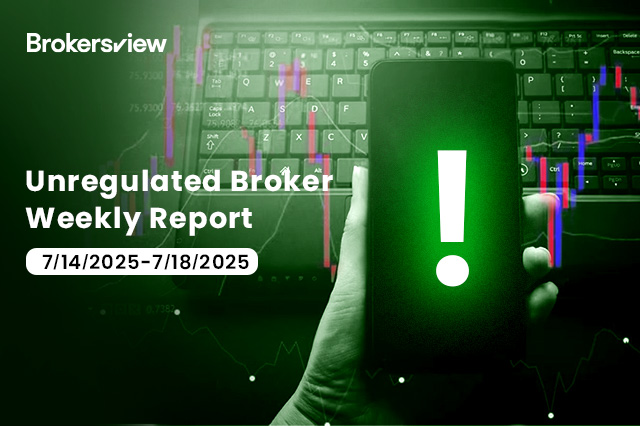- Brokers HOT
- Scam
- BV Assessment NEW
- Rankings
- Regulators
- News
- Claims
- Expo
- Event
- Awards
 Download
Download
Important of Liquidity in Forex Trading
Previously we have discussed Forex trading liquidity, providers categories, but today we wanted to emphasize more on its importance.
Liquidity is a key factor in Forex trading
Forex trading is a global financial market in which traders buy and trade currencies. With an average daily trading value exceeding US$6 trillion, the forex market is the largest financial market in the entire world. Liquidity is one of the most essential elements of trading on the foreign exchange market.
Liquidity is the ability to buy and sell a currency with no impact on its value. If there are many buyers and sellers, liquidity will be high on the market. The liquidity of major pairs such as EUR/USD and USD/JPY is high due to the number of trades that are made every day.
When trading on a market that is liquid, like forex, you don't need to wait long to open or close a position. It also means that you can trade large volumes of currency without affecting the market price.
Liquidity in forex trading offers traders the opportunity to benefit from tight spreads. The spread is the difference between the price at which you can buy a currency and the price at which you can sell it. Spreads tend to be tighter on liquid markets as brokers take less risk when executing orders.
Spreads that are tight can be a great benefit to traders, as they save money in the long run on transaction fees. If your broker charges excessive fees, you may see a significant drop in profits.
Liquidity also matters for traders who employ short-term forex strategies such as scalping. Scalping involves taking small positions and making profits from each one. To maximize profits, traders who employ this strategy need to be able to enter and exit markets quickly.
Liquidity is also important for traders to minimize the risk of sudden market changes or deviations. There may be times in an illiquid marketplace when there are not enough buyers or sellers for your order. In an illiquid market, there may be times when there aren't enough buyers or sellers to fill your order.
In conclusion, liquidity is one of the most essential aspects of trading in the forex market. It allows traders to quickly enter and exit the market without significantly affecting the price, saving them a lot of money in transaction fees in the long run. Liquidity is also essential for those who practice short-term trading strategies like scalping, and it helps to minimize the risks associated with sudden deviations or unexpected market movements.
It is therefore essential for any trader to understand the importance of liquidity in forex trading. This will enable any trader to make informed decisions when it comes to choosing which currency pairs to trade and when to enter or exit the market.

Forex Market Liquidity Measurement
Trading forex is heavily reliant on liquidity, which makes it one of the key components of this market. Liquidity is a way for traders to easily buy and sell currencies, allowing them to do so without significantly changing their prices.
When it comes to forex, liquidity is the ability of assets and currencies to be bought or sold quickly with minimal impact on their prices. A good indicator in this regard would be the bid/ask spread. This spread represents the difference between how much a broker is willing to pay for currency when buying (called “bid”) and selling (called “ask”) it.
A second way of measuring liquidity involves looking at average daily trading volumes for certain currency pairs. A high volume average is a sign of a liquid pair, as it indicates that the markets are active.
It is also important to take the length of time into consideration when calculating liquidity. When several financial institutions are operating simultaneously, it is considered to have optimal trading conditions.
After understanding the significance and measurement of liquidity, we will now look at its benefits to traders.
Traders can execute large orders more quickly with high liquidity, as they don't have to spend time searching for a buyer.
Further, more liquidity could lower trading costs. For pairs of liquid currencies, brokers are more likely to offer tighter trading spreads. This is because the trade execution of these pairs can be done more rapidly without having to use large premiums that offset late order execution risk.
High liquidity provides traders with more options to select their trading strategy. Liquid pairs of currencies offer multiple prices for entering and leaving, so traders can choose which one is best for their plan.
Liquidity, in general, is essential to successful forex trading. Trading liquidity allows you to reduce costs and execute your orders faster, while also expanding your strategic options.
Forex Trading with Low Liquidity and Its Risks

Forex trading involves purchasing and selling foreign currency pairs at fluctuating exchange rates to take advantage of fluctuations between them. To successfully trade in this global forex marketplace, traders need a firm understanding of market liquidity.
Liquidity in forex trading refers to an asset's or currency's ability to be bought or sold quickly without seeing its price drop as quickly.
Liquidity risks put traders in jeopardy in the forex market. When one currency gains strength, traders may not have access to enough liquidity in order to buy or sell a currency pair quickly and squander profitable opportunities.
Due to limited liquidity, traders may require extra funds in order to enter and exit these markets.
Forex markets can become unnerving when their liquidity drops rapidly and prices fluctuate unexpectedly, creating chaos among traders trying to make informed decisions.
Low liquidity increases the chance of slippage. Slippage occurs when an investor's desired currency rate doesn't coincide with what can be purchased on market sellers' lists.
Forex traders need to ensure there is plenty of liquidity when trading to minimize any associated risk. Here are a few helpful hints.
Popular currency pairs like EUR/USD, USD/JPY, and GBP/USD tend to have the greatest liquidity.
Second, try not to trade during holidays or certain times (such as Tokyo's closing time).
Thirdly, whenever possible, it would be beneficial to place limit orders instead of market orders. Leaders, economic reports, and limit orders all play an influential role when it comes to market liquidity.
Forex liquidity is vital to successful forex trading, and traders should be mindful of any risks caused by low market liquidity. They should select pairs with smaller spreads and opt for limit orders over market orders for maximum success in trading forex. Furthermore, staying informed on economic news and government policies could further assist their trading endeavors.
Questions and Answers
1. What is forex liquidity?
When it comes to forex trading, liquidity refers to the asset’s ability to be bought or sold quickly and without impacting its price.
2. Why does it matter to trade forex with good liquidity?
Trades can be entered and exited easily with good liquidity, minimizing risk and maximizing potential profit.
3. How can liquidity be assessed in the forex market?
In order to determine the liquidity of the Forex markets, traders should look at the spreads on a currency pair, the trading volumes, and the gap between the ask and bid prices.
Conclusion
Forex traders need liquidity to be able to quickly buy or sell currencies without it affecting the market price. Liquidity is important because it ensures quick order execution and reduces risk. Forex traders can be influenced by liquidity in a number of ways. For any trader, it is crucial to know the value of liquidity as well as how this can impact their trading strategy.










